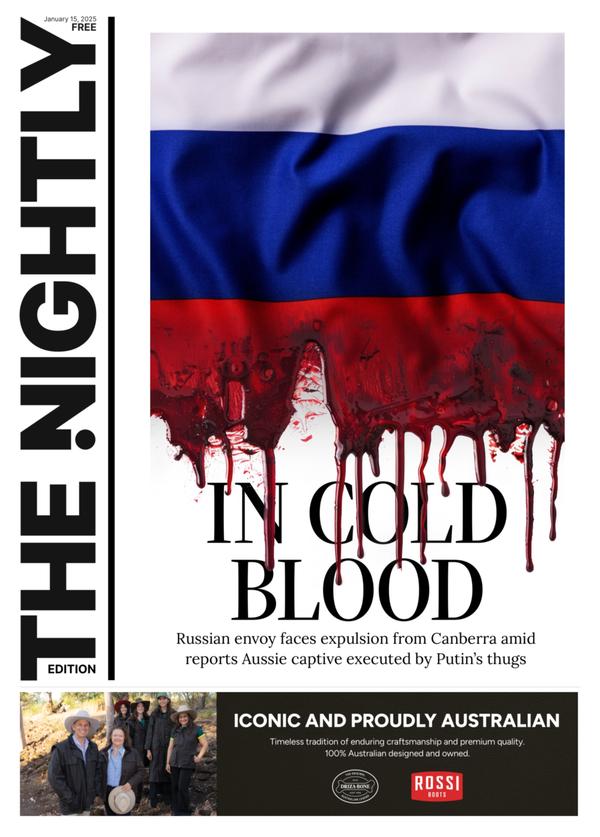AFL forced to act after high-powered dinner turns tense over controversial tackle rulings
An AFL dinner with the 18 club bosses turned tense and frosty on Tuesday night, 7NEWS Melbourne’s Mitch Cleary has revealed, as powerbrokers reacted to controversial tribunal decisions.
Several topics have been on the agenda for the two days of meetings in Perth but the AFL was forced to act on the pressing frustration over Charlie Cameron and Toby Bedford being banned for dangerous tackles.
WATCH THE VIDEO ABOVE: AFL forced to act after high-powered dinner turns tense.
Sign up to The Nightly's newsletters.
Get the first look at the digital newspaper, curated daily stories and breaking headlines delivered to your inbox.
By continuing you agree to our Terms and Privacy Policy.Changing the access to Next Generation Academy players, club funding, the potential introduction of in-season pick trading and fixturing were among the many issues discussed.
The AFL’s illicit drugs policy, which has been in place since 2005, was also in the firing line after hitting the headlines earlier this year when allegations surfaced about clubs doing off-the-book tests.
But the high-powered dinner lining up with a night of tribunal hearings meant one conversation took priority.
A group of club bosses were left frustrated at what is now expected of players, suggesting the pressure is now pulling at the fabric of the game, and demanded a serious conversation that night.
The AFL instead made a last-minute decision to discuss dangerous tackles on Wednesday.
The league says the grading system will be reviewed at the end of the season but the debate will rage on as the finals near.
“I think the players have adapted. Sometimes you just have weekends like we’ve had,” AFL chief executive Andrew Dillon said on Wednesday.
“There are accidents but what we’re trying to do is prioritise the health and safety of our players.
“Where we can avoid head-high contact, we want to do that.”
Cameron and Bedford will take the tribunal rulings to the AFL appeals board on Thursday night.
Elsewhere after the dinner, Dillon said the league will have an “enhanced” illicit drugs policy in place for next year.
MP Andrew Wilkie used parliamentary privilege in March to allege Melbourne players who tested positive to those off-the-book tests were then told to feign an injury and not play, thus avoiding returning a positive in-game test.
Sport Integrity Australia investigated the claims and later cleared the AFL of breaching any anti-doping rules.
Despite that ruling the issue remains a hot talking point and the AFL are expected to tighten any potential loopholes.
“It’s a conversation that we’ve been having internally at the AFL with our clubs and then started the discussions with the players and the Players’ Association,” Dillon said of the policy.
“We’re looking to have a revised and enhanced illicit drugs policy in place for next season.”
Ball-tracking technology could also arrive as early as next year after being trialled in the VFL and VFLW earlier this season, with the AFL keen to implement it at the senior level once it is ready.
When that is remains to be seen, but the early trials have been promising.
“The trials are going quite well,” Dillon said.
“But we don’t want to introduce a technology like that until we’re 100 per cent certain that it’s as accurate as it can be and it doesn’t affect the ball.
“There is a chip in the ball and that’s how it works. It charges wirelessly and it’s portable, and you can use it at any venue.”
The draft is expected to introduce new rules that will allow clubs to have access to their Next Generation Academy products from pick No.1 onwards.
Under current AFL rules, clubs are not allowed to match a rival’s bid on one of their Next Generation Academy players until after pick No.40.
Clubs have been outraged at the rule, stating all the money and time they invest into their NGA products often goes to waste given other teams can swoop in and snare the best talent.
The change is set to tie into clubs having to use higher draft picks to match rival club offers on father-son picks, rather than using a flurry of lower picks to match the offer.
“We want to make sure that when you have that preferential access to a player, you are paying as fair a price as possible,” Dillon said.
West Coast and Fremantle are both keen to be handed an extra home game from next year in a bid to lessen their hectic travel schedules.
Dillon said that issue and other fixturing matters will be discussed further at the commission meeting in August, but he hinted it may be hard to grant them an extra home game.
Instead, the two WA teams may be fixtured for more consecutive away games, which will allow them to stay interstate and thus reduce the amount of travel they do.
The AFL also announced on Wednesday an extra 1000 tickets will be allocated to competing club members for the 2024 grand final, raising the overall number for club members to 35,000.
- with AAP
Originally published on 7NEWS Sport
